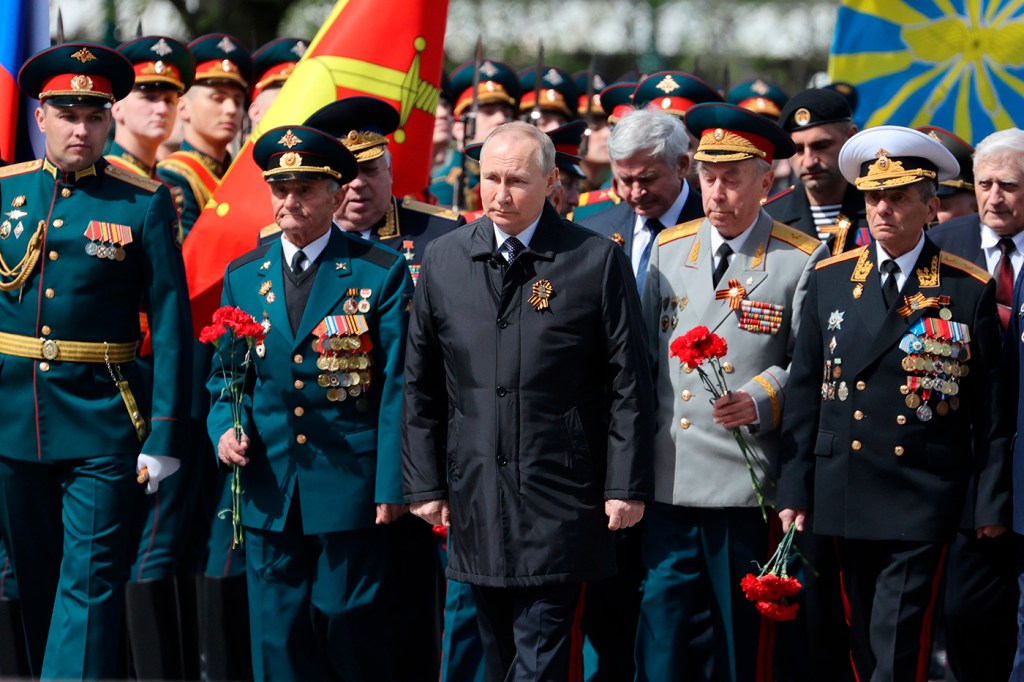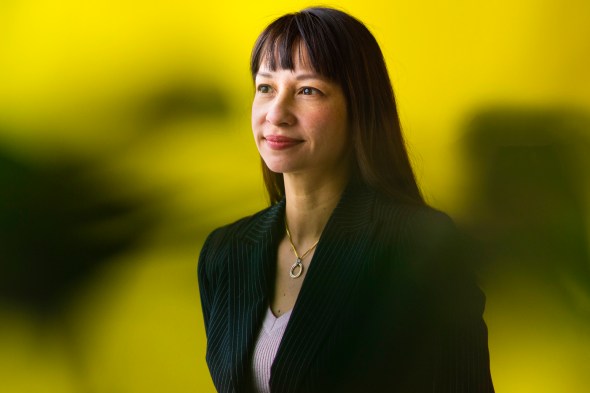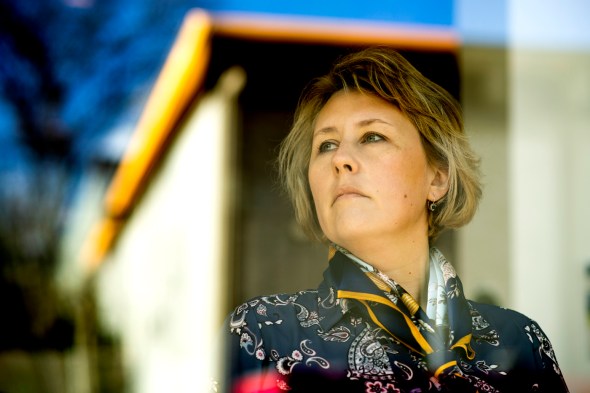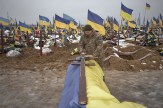How do Russian citizens feel about the war in Ukraine? Here’s why it’s hard to tell.

This report is part of ongoing coverage of the Russia-Ukraine war. Visit our dedicated page for more on this topic.
Russian President Vladimir Putin used the national Russian holiday commemorating Nazi Germany’s defeat at the end of World War II to demonize the West, suggesting it is responsible for Russia’s war in Ukraine. In his annual “Victory Day” speech on May 9, Putin said the ongoing invasion and occupation of Ukraine was necessary because the West was “preparing for the invasion of our land, including Crimea,” according to CNBC.
His speech comes after weeks of speculation over whether the Kremlin would seize the occasion to announce an escalation in the war, says Mai’a Cross, Edward W. Brooke Professor of Political Science and International Affairs at Northeastern. While still a “classic example of Russian propaganda,” filled with bombastic rhetoric about the role of the West in forcing the Kremlin’s hand in Eastern Europe, the speech felt somewhat subdued in tone, with Putin treading carefully around the subject of a victory in Ukraine, Cross says.

Mai’a Cross, Northeastern Associate Dean of Faculty Affairs, Diversity and Inclusion; Edward W. Brooke Professor of Political Science & International Affairs. Photo by Alyssa Stone/Northeastern University
“Clearly the Russian military is too beleaguered, too weakened at this point for Putin to feel as though he could use this day as an opportunity to escalate things,” Cross says. “But that doesn’t mean he won’t take this escalatory stance in the coming days.”
Observers have speculated that Putin would use the Victory Day event and military parade as a way to boost morale, but it’s unclear what effect it will have on public opinion in Russia. Russian support for the war—what Putin continues to describe as a “special military operation”—is likely to begin declining as the true costs of the war—the staggering loss of life and effects of the economic sanctions—become more apparent, some experts have speculated. Based on available data, attitudes have already begun to shift, says Ekaterina Botchkovar, associate professor of criminology and criminal justice, who is currently researching the human effects of long-term exposure to war, specifically in Ukraine.
“If we look at the polls, there’s already this slight decrease in [Russian] approval of the [war],” Botchkovar says. “But there is still a lot of support for this war.”
Some of the support is more passive, Botchkovar says, coming from Russian citizens who’ve placed their faith in Putin as a political leader, but who may not necessarily vocalize that support. The common thread, she says, is a deep distrust of the West, rooted in decades of state propaganda.
But the problem with measuring public opinion in a country under authoritarian rule and censorship, Botchkovar says, is that the data are highly imperfect.

Ekaterina Botchkovar, associate professor of criminology and criminal justice. Photo by Matthew Modoono/Northeastern University
Russia-based research outfits such as the Levada Center have been able to maintain some independence, but face higher rates of non-response. Many ordinary Russians decline to participate in polling for fear of government retribution—and those who do are likely to indicate higher levels of support for Putin for the same reason, Botchkovar says. Additionally, data suggests that up to 30% of Russians say they’re not closely following the situation in Ukraine, she says.
It’s really difficult to gauge Russian domestic support for Putin, Botchkovar says, but through analysis of trends and indirect evidence, such as polling of Ukrainians with Russian relatives, social science researchers can piece together a somewhat coherent picture of prevailing attitudes.
“I’m pretty sure he has a sizable percentage of people who trust him,” Botchkovar says of Putin. “But I won’t be able to tell you what that percentage is.”
The longer the war drags on, the deeper the human and economic toll in Russia, which will almost invariably impact public opinion, Botchkovar says.
“It’s very likely this decrease in support will continue, because Putin was hoping for a very quick Blitzkrieg-like kind of war that would not entail so many losses,” she says. “What we have gotten is just the opposite.”
For media inquiries, please contact media@northeastern.edu.






